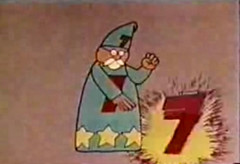Richard Rorty 1931-2007
From Contingency, Irony, and Solidarity:
By seeing every human being as consciously or unconsciously acting out an idiosyncratic fantasy, we can see the distinctively human, as opposed to animal, portion of each human life as the use for symbolic purposes of every particular person, object, situation, event, and word encountered in later life. This process amounts to redescribing them, thereby saying of them all, "Thus I willed it."
Seen from this angle, the intellectual (the person who uses words or visual or musical forms for this purpose) is just a special case—just somebody who does with marks or noises what other people do with their spouses and children, their fellow workers, the tools of their trade, the cash accounts of their businesses, the possessions they accumulate in their homes, the music they listen to, the sports they play or watch, or the trees they pass on their way to work. Anything from the sound of a word through the color of a leaf to the feel of a piece of skin can, as Freud showed us, serve to crystallize a human being's sense of self-identity. For any such thing can play the role in an individual life which philosophers have thought could, or at least should, be played only by things which were universal, common to us all. It can symbolize the blind impress all our behavings bear. Any seemingly random constellation of such things can set the tone of a life. Any such constellation can set up an unconditional commandment to whose service a life may be devoted—a commandment no less unconditional because it may be intelligible to, at most, only one person. (36-37)

